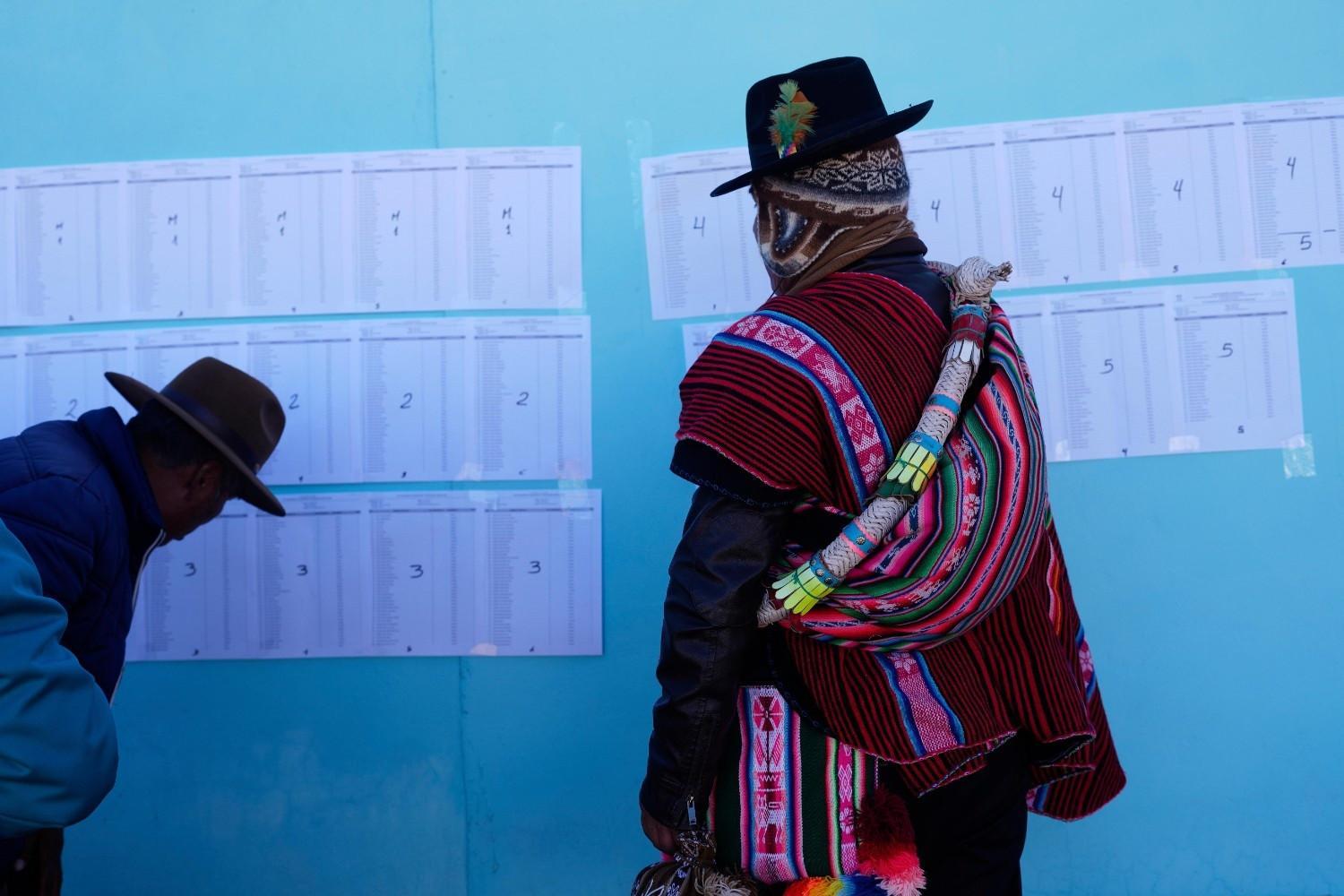
Voters check electoral rolls during general elections in Jesus de Machaca, Bolivia, Sunday, Aug. 17, 2025. (AP Photo/Juan Karita)
Bolivia’s upcoming presidential election will mark a shift from nearly two decades of socialist rule, but many Indigenous and environmental leaders doubt it will bring progress in stopping deforestation, wildfires or pollution in the Amazon.
The Oct. 19 runoff pits centrist Sen. Rodrigo Paz against right-wing former president Jorge “Tuto” Quiroga — two contenders promising change but rooted in an economic model critics say has long fueled environmental damage in one of South America’s most biodiverse nations.
The Amazon spans nine countries and plays a crucial role in absorbing carbon and regulating climate patterns worldwide. Approximately 8 percent of the Amazon is in Bolivia. Scientists warn that deforestation is pushing parts of the forest toward a tipping point where it could shift into savanna.
The election feels like a choice between two threats, according to Ruth Alipaz Cuqui, coordinator of the Indigenous alliance CONTIOCAP and a member of the Uchupiamona community. She said governments of all stripes have ignored Indigenous well-being.
“Agreements are signed, commitments are made, laws and decrees are passed, but in the territory there is absolutely nothing applied," she said.
Quiroga’s campaign told The Associated Press he would tighten controls on wildfires, promote sustainable agriculture, expand biofuel production, and encourage reforestation to curb high deforestation rates. He also calls for using carbon and green bonds — tools to raise money to fund conservation efforts.
Paz, who has also called for carbon bonds, did not respond to a request for comment.
Environment has paid a price for economic policies.
Evo Morales — Bolivia’s first Indigenous president — often invoked Pachamama, the Indigenous concept of Mother Earth as a living being that sustains life, and rose to power by championing Indigenous rights and environmental protection.
But his socialist governments also expanded exports of soy, beef, gas and minerals to fund social programs. And his administration allied with agribusiness and ranching elites, loosened land-clearing restrictions and promoted infrastructure projects that opened new frontiers in the Amazon.